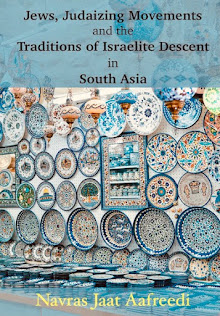Anika McMahon, Arbiter, November 4, 2013
A DIRECTOR of a Griffith University Multi-Faith Centre believes
Australia can make an important international statement on religious
tolerance by engaging in meaningful dialogue with leaders of all faiths.
The International Religion Journalism Symposium provided students an
open space for discussion and understanding of the events that happen in
our community involving religious journalism.
Religion journalism has become an issue in today’s society as journalists are unable to capture the true nature of faith communities within their reporting.
Religion journalism has become an issue in today’s society as journalists are unable to capture the true nature of faith communities within their reporting.
Dr Navras Jaat Aafreedi, Assistant Professor at the School of
Humanities & Social Sciences, Gautam Buddha University in India
believes that the biggest issue lies with a generalisation of religions
through a journalist’s lack of knowledge.
A key topic that Dr Aafreedi covered was the importance of accepting
other religious beliefs and the need for the international community to
understand the different traditions and issues within each faith
community.
“It is as important to understand the beliefs of others as one’s [own] belief to be able to develop harmonious relations with people around us. It is the overly literal interpretations of the polemics in religious texts and the out of context readings of passages that lead us to misunderstand religions.”
Co-ordinator of The International Religion Journalism Symposium Casey
Crocket went on to emphasise the importance of accurate reporting in
religion journalism, mentioning the constant connection between faith
and worldwide conflicts.
Ms Crocket stressed the need for fair and balanced reporting to allow
communities exposed to religious news stories have a better, more
accurate understanding of their global environment.
Director of the Multi-Faith Centre Brian Adams stated that Australia
has acknowledged the need for more in-depth, balanced reporting in the
area of religion journalism.
He believes that by holding events such as the symposium, an opening for further development in understanding varying religions’ and other similar issues will occur.
“Australia on the federal level has made a statement that inter-faith dialogue and issues of religion and challenges of that need to be better addressed in the media. So, it’s a good opportunity for Australia to be seen as taking the lead in this, it’s an important statement.” he said.
The International Religion Journalism Symposium was held at Griffith University, South Bank campus last Tuesday and Wednesday with much success.














.jpg)

















